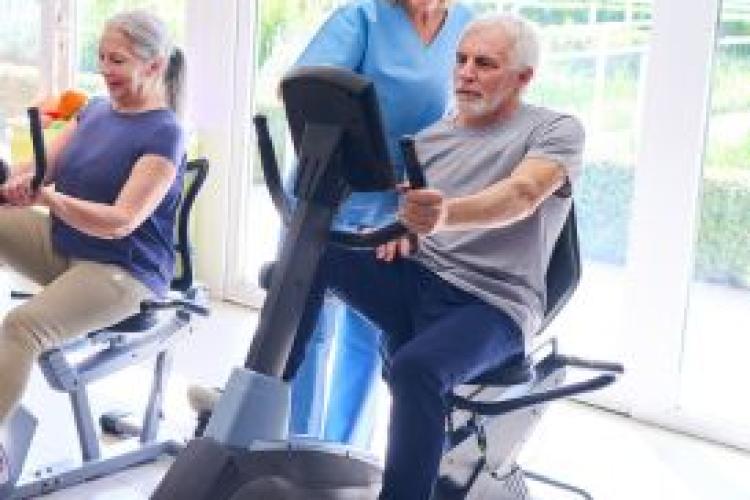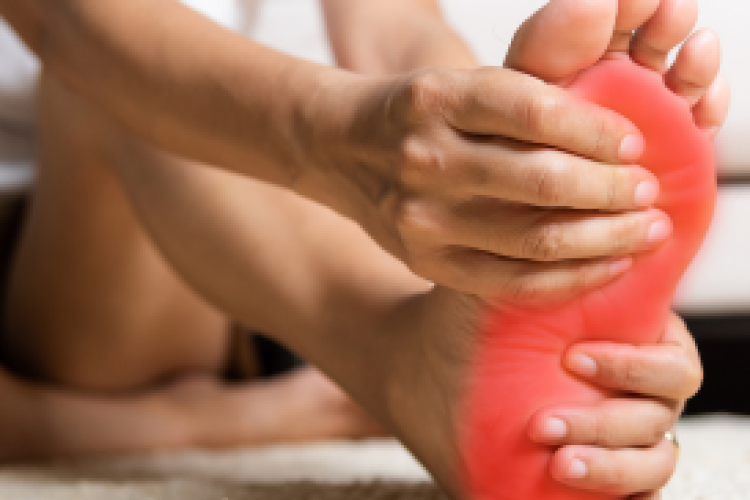Denise Roma, MS, RD, CDN, CDE, a community health educator and diabetes educator at Montefiore Nyack Hospital, shares some suggestions for making realistic resolutions for diet and exercise in the coming year.

New Year’s and weight-related resolutions go hand in hand. So why are they so quickly broken? According to Registered Dietician Denise Roma, people often make resolutions but don’t make a plan for how to achieve it. As the saying goes, if you fail to plan, then plan to fail. “Everyone wants to lose weight fast, but they fail to realize that it took years to gain the weight,” states Denise. “It’s unrealistic to think you’ll lose it all in a month or two.”
The key to any successful behavioral change starts with planning. A plan for diet and exercise should be “SMART”: specific, measurable, appropriate, realistic and time bound. For example, instead of resolving simply to exercise more, Denise suggests you make a specific plan. Start walking Monday, Wednesday and Friday for 20 minutes before work. To increase your chances of success, put your walking shoes and clothes out the night before. When you see them in the morning, it will be harder to skip your walk.
“Think about why you want to lose the weight and make it very personal,” says Denise. For instance, people who want to lose weight for a wedding they’re attending don’t often succeed in keeping it off long-term. Denise recommends choosing something that hits home, such as improving your health. Pick an activity you actually like. A lot of people choose something they hate to do and then quickly drop it. Start small – it’s OK to start with 10 minutes of an activity, and then gradually work up to 30 or 60 minutes over time. You may think, “I don’t have 30 minutes or an hour.” But, you probably can squeeze in pockets of 15 minutes at a time, several times throughout the day.
Some other changes you can make are:
- Eat on smaller-sized plates and bowls.
- Think before you eat – is it worth the calories?
- Stop drinking sugar-sweetened beverages—today!
- Stop eating when you’re satisfied, not when you’re full.
- Eat mindfully. Don’t eat while you’re multitasking.
- Try writing down everything down you eat—you’ll become much more aware of how much you are really eating.
Don’t think about going on a diet. Instead think of healthy eating. Start with a small positive change, such as eating a healthy breakfast. Then choose another goal, such as replacing that afternoon candy bar with a healthy afternoon snack. If you start with a small change, you’re more likely to stick with it. Reward yourself when you achieve one of these changes. Buy yourself a new pair of sneakers or a cute lunch bag—NOT a piece of cake! That doesn’t mean you can’t allow yourself occasional indulgences. Having a treat once in a while makes it easier to stick to your healthy eating plan the rest of the time.
Healthy Weight Resources at Montefiore Nyack Hospital
The Community Education Department at Montefiore Nyack Hospital offers programs and hosts support groups designed to help individuals with weight loss and healthy living. “Lose to Win” is an eight week program for individuals who want to lose weight. “Food Addicts in Recover Anonymous” is a twelve step program offered on weekends for individuals who are suffering from problems with food. For a complete list of classes, please visit montefiorenyack.org.



 Upcoming Events
Upcoming Events



